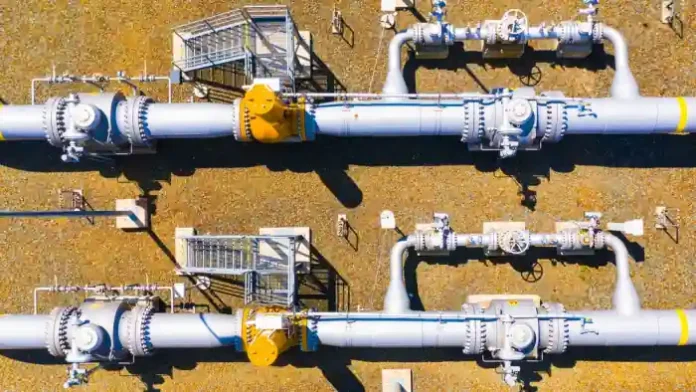
In March 2024, Bulgaria imported 44.6 million cubic meters of natural gas from Azerbaijan, marking a modest increase of 0.22 percent compared to the same period in the previous year, according to data from Eurostat, the European Union’s statistical office, as reported by News.Az.
Despite this slight uptick in volume, the total value of these imports saw a significant decline, dropping 28.2 percent from 30.5 million euros to 23.8 million euros.
This import activity forms part of a larger trend in Bulgaria’s energy strategy, which saw the country import over 920 million cubic meters of gas from Azerbaijan throughout 2023.
The total value of these annual imports was 311.5 million euros.
This sustained relationship underscores Bulgaria’s strategic pivot towards diversifying its energy sources and reducing reliance on Russian gas.
Bulgaria began importing gas from Azerbaijan through the Greece-Bulgaria interconnector (IGB) on October 1, 2022. The IGB, a critical infrastructure project aimed at enhancing regional energy security, has a contractual volume of gas supplies set at 1 billion cubic meters per year.
However, its full capacity stands at 3 billion cubic meters, with potential expansion capabilities to 5 billion cubic meters annually.
This interconnector not only fortifies Bulgaria’s energy independence but also integrates the country more deeply into the European energy network.
The IGB is a crucial link in the broader Southern Gas Corridor, which includes the Trans Adriatic Pipeline (TAP). TAP, operational since late 2020, is designed to transport natural gas from Azerbaijan’s Shah Deniz field in the Caspian Sea to Europe.
It has a current capacity of 10 billion cubic meters per year, expandable to 20 billion cubic meters.
This infrastructure is pivotal for the European Union’s strategy to diversify its energy sources and reduce dependence on Russian gas, especially in light of geopolitical tensions.
The slight increase in Bulgaria’s import volume from Azerbaijan in March 2024, juxtaposed with the significant decline in the import value, reflects broader market dynamics.
Global energy markets have experienced volatility, with fluctuating gas prices driven by factors such as varying demand, geopolitical uncertainties, and shifts in production levels.
The 28.2 percent decrease in the import value suggests that Bulgaria benefited from lower gas prices, even as it imported slightly more volume.
Bulgaria’s strategic approach to energy security involves a multi-faceted strategy that includes not only diversifying supply sources but also investing in infrastructure that enables greater flexibility and resilience.
The IGB, along with other interconnections and storage facilities, enhances Bulgaria’s ability to manage supply disruptions and price volatility.
In conclusion, Bulgaria’s import of 44.6 million cubic meters of natural gas from Azerbaijan in March 2024 represents a nuanced development in its ongoing efforts to secure and diversify its energy supply.
While the volume increase was minimal, the substantial decrease in import value highlights favorable market conditions.
As Bulgaria continues to leverage its infrastructure investments, including the IGB and the Southern Gas Corridor, it positions itself more robustly within the European energy landscape, enhancing both its energy security and economic resilience.
